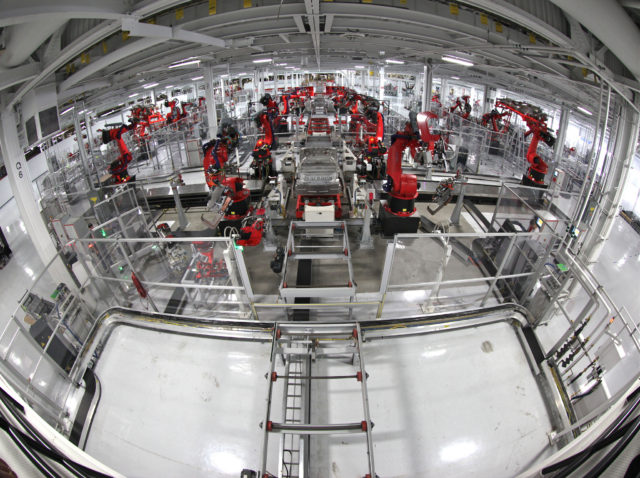As we install more machines that replace former high-level work, we’re seeing fewer decent-paid jobs and the need for universal basic income.

I felt terrible about the consequences of my work. I felt angry with my boss who knew exactly what would happen. He had made me the unwitting messenger of bad news. I never found out the consequences, but we’ve all heard countless stories like this.
We are building and bringing to market machines that perform what were formerly:
- high-level executive functions (e.g., financial and legal advice); and
- “job-safe” manual labor (industrial and service robots).
I believe we are at a tipping point where the unexamined assumption that there will somehow always be enough paid work for people is breaking down.
Our children have a much harder time landing a “good job” unless they have an ever-shrinking set of high-level, constantly shifting skills.
It’s time to face an unpleasant reality. The notion that there will be enough paid jobs to allow workers to make a decent living may no longer be sustainable.
We need to seriously consider implementing universal basic income before we end up in a world where a tiny elite is paid for work and the rest has nothing to do and no income.
[Written after reading the New York Times article Robocalypse Now? Central Bankers Argue Whether Automation Will Kill Jobs.]
Photo attribution: Flickr user jurvetson

I’m glad you’re writing about this, Adrian. There’s been so much material going around — fascinating from the perspective of tech advances, very scary from the point of view of livelihoods and social cohesion — about the acceleration of nifty new technologies whose back-end effect will be to destroy jobs. That’s particularly scary in a country like the U.S., where the majority of legislators seem to think it’s their sworn duty to shred whatever is left of the social safety net.
But the storyline is all around us, as you say — the 50 sectors and industries that will be reshaped or largely eliminated by autonomous vehicles, job loss in the U.S. coal industry (brought on by endless automation, not by Trump’s utterly mythical “war on coal”), and now the trend toward “de-manning” oil and gas operations through automation. (I promise, I didn’t make up that very odd term. http://theenergymix.com/2017/06/27/execs-look-to-de-manning-to-take-work-force-out-of-the-tar-sandsoil-sands/ )
I don’t think technology will replace utterly human skills like facilitation. But I wonder whether any of your conference clients are putting any thought into where the participants will come from if smaller work forces mean less investment in professional development, fewer people have stable enough incomes to pay their own fees, and those who do are saving every penny against what feels like an inevitable future layoff?
You would almost think that line of thought gave meetings and events a vested interest in lobbying for a guaranteed basic income. But wait. Last I saw, at least one senior industry spokesperson was busy with something far more important: trying to thread the needle and express the industry’s concern about Trump’s travel ban, without in any way undercutting his absolute fealty to the administration that brought the ban into being. Anyone want to place a side bet on whether the real crisis will get the attention it deserves?
I agree with you 100%, Mitchell. Though I think the meeting industry’s failure to focus on these outcomes can be generalized to society at large. Once again, humans find it hard to prepare for a very likely future until it arrives in full force and can no longer be ignored.
Here’s additional perspective from @mayadroeschler
Robots are going to take a lot of jobs — here’s what we could do about it:
—universal basic income
—negative income tax
—government jobs guarantee
—broader social safety net
—robot tax
“Robots will never be our masters, but those who own them will be.”